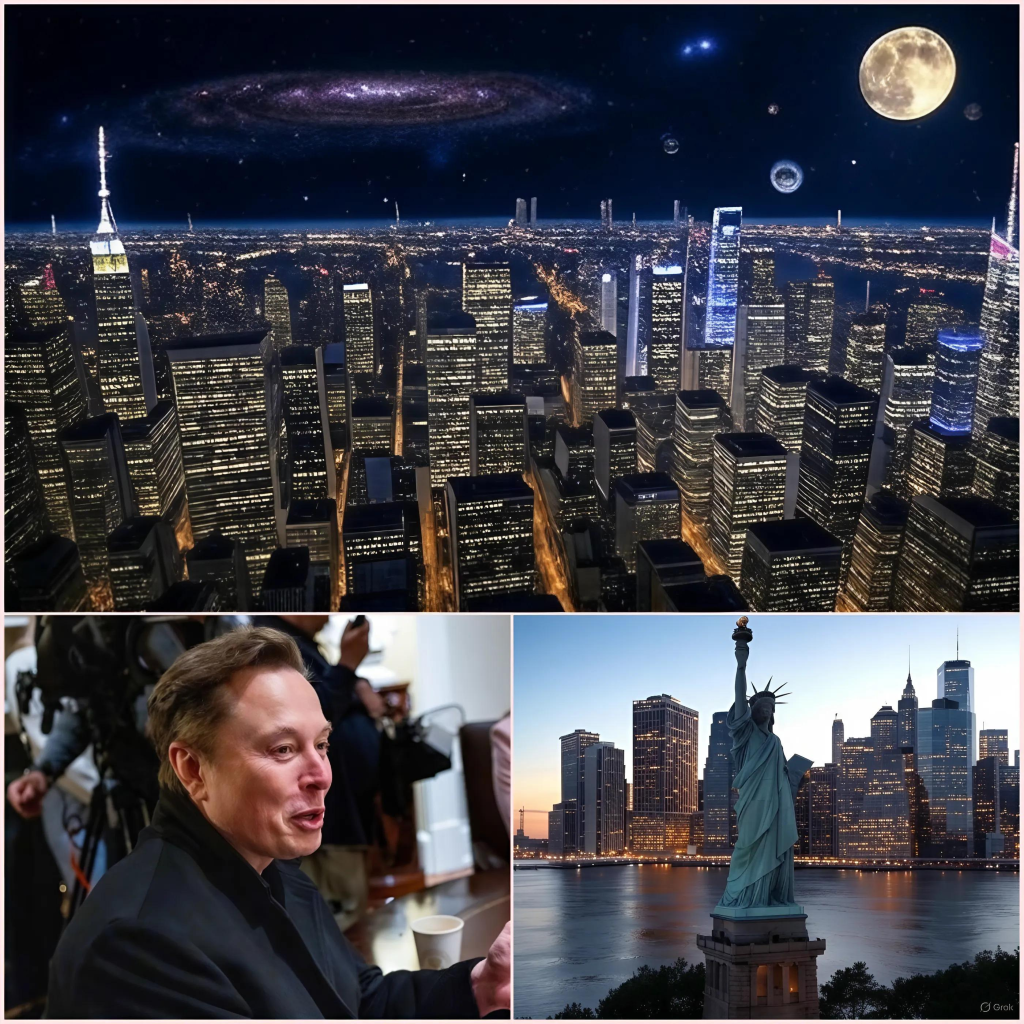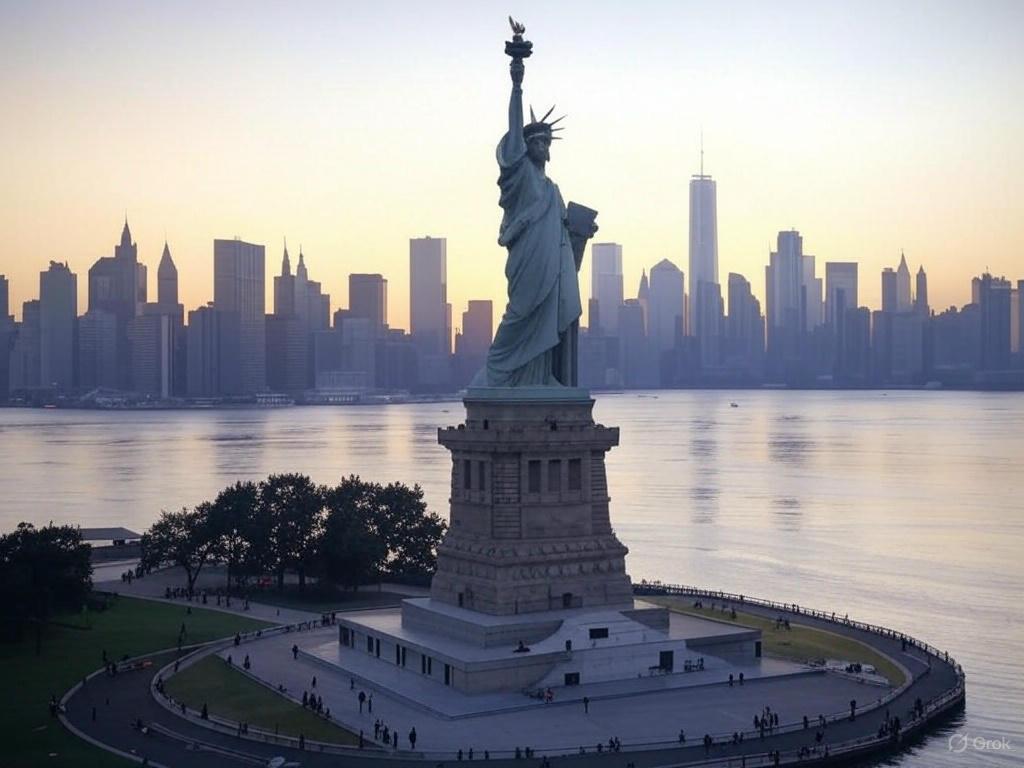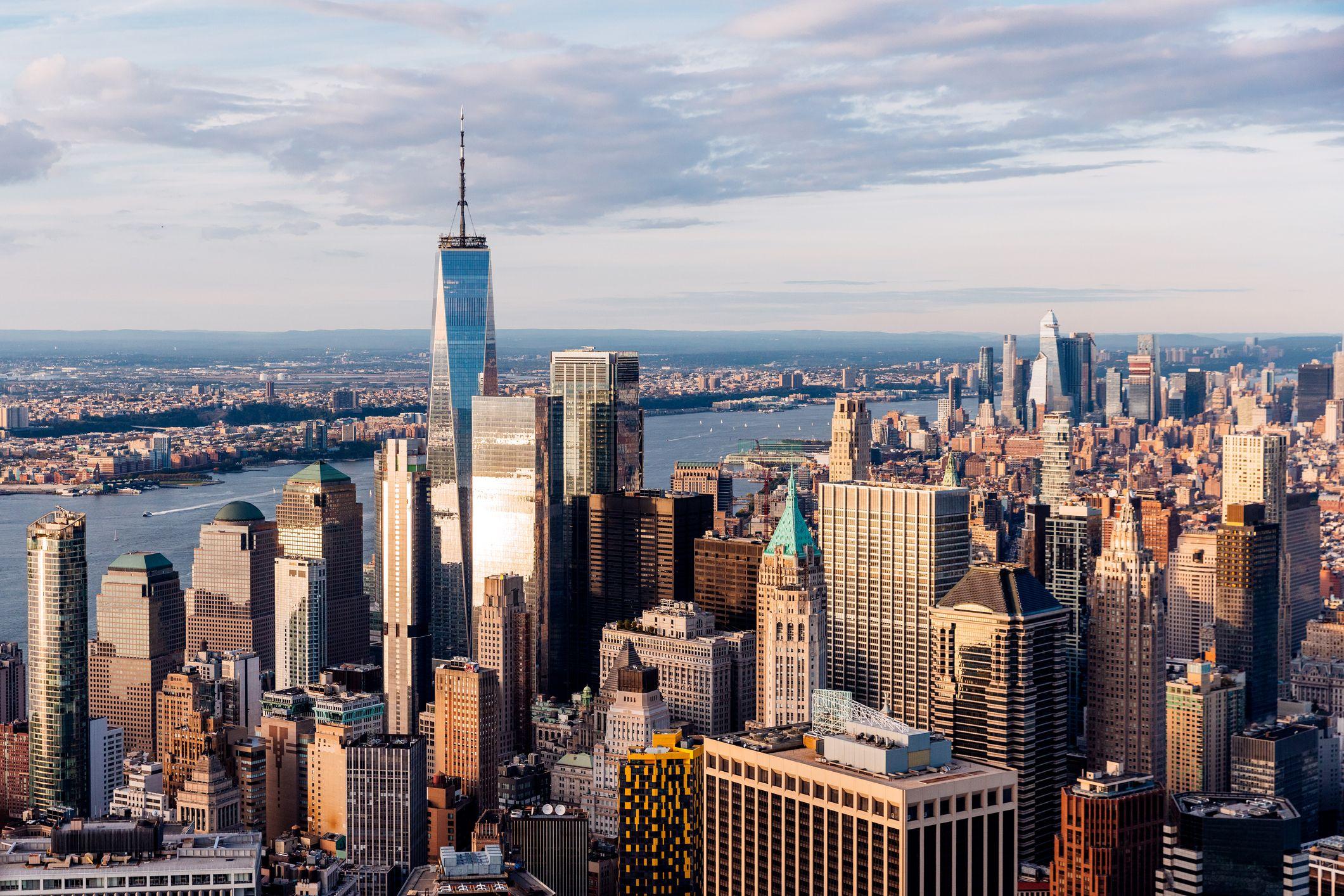
In a jaw-dropping revelation that has sent shockwaves across the United States, visionary entrepreneur Elon Musk has unveiled his most ambitious project yet: the construction of a futuristic city in outer space. Speaking at a highly publicized event in California, the billionaire CEO of SpaceX declared, “I will build a second New York up there,” igniting imaginations and sparking debates about the future of humanity’s presence beyond Earth. The announcement, made in Musk’s signature bold and unapologetic style, has captivated the public and left experts scrambling to analyze the feasibility of such an audacious endeavor.
Musk’s vision for this extraterrestrial metropolis is nothing short of revolutionary. He described a self-sustaining city floating in orbit, designed to house thousands of residents and equipped with cutting-edge technology to support life in the harsh environment of space. The proposed city would feature advanced life-support systems, zero-gravity recreational zones, and sustainable energy solutions powered by solar arrays. Musk emphasized that this project is not merely a speculative dream but a tangible goal, with SpaceX already allocating significant resources to research and development. “This is the next logical step for humanity,” Musk stated, underscoring his belief that becoming a multi-planetary species is essential for long-term survival.

The announcement comes at a time when SpaceX is already pushing the boundaries of space exploration. With successful missions to the International Space Station, the development of the Starship spacecraft, and plans for crewed missions to Mars, Musk’s company has established itself as a leader in the aerospace industry. However, the concept of a fully functional city in space represents a quantum leap forward. Musk revealed that the project is in its early stages, with initial designs focusing on modular habitats that can be assembled in orbit. These habitats would serve as the foundation for a larger urban ecosystem, complete with residential quarters, commercial districts, and even agricultural zones to produce food.
Public reaction to Musk’s announcement has been a mix of awe, skepticism, and excitement. Supporters view the project as a bold step toward a future where humanity thrives beyond Earth, potentially alleviating overpopulation and resource scarcity on our planet. Social media platforms have been flooded with artistic renderings of what this cosmic city might look like, with some users dubbing it “Muskopolis.” Critics, however, question the practicality and cost of such a venture, pointing out the immense technical challenges and financial investment required. Building a city in space would demand unprecedented advancements in materials science, robotics, and life-support technologies, not to mention the logistical hurdle of transporting materials into orbit.

Musk addressed these concerns head-on, acknowledging that the project is a “monumental challenge” but insisting that it is achievable within the next few decades. He cited SpaceX’s track record of overcoming skepticism, such as the development of reusable rockets, as evidence of the company’s ability to turn ambitious ideas into reality. Musk also hinted at potential partnerships with NASA, private corporations, and international space agencies to share the burden of funding and expertise. “This isn’t just a SpaceX project,” he said. “It’s a global effort to redefine what it means to be human.” The announcement has also sparked discussions about the societal implications of a space-based city. Who would live there? How would governance work? Musk suggested that the city would operate as a “beacon of innovation,” attracting scientists, engineers, and entrepreneurs eager to pioneer a new way of life. He envisioned a merit-based system where residents are selected based on their skills and contributions, though he remained vague on the details of governance and accessibility. This has raised questions about inclusivity and whether such a city would be reserved for the elite.
As the world digests this bombshell announcement, one thing is clear: Elon Musk has once again redefined the boundaries of possibility. Whether his vision of a second New York in space comes to fruition remains to be seen, but the audacity of the idea has already inspired a new wave of curiosity about humanity’s future among the stars. For now, all eyes are on SpaceX as it embarks on what could be the most transformative project in history, one that might just turn science fiction into reality.


